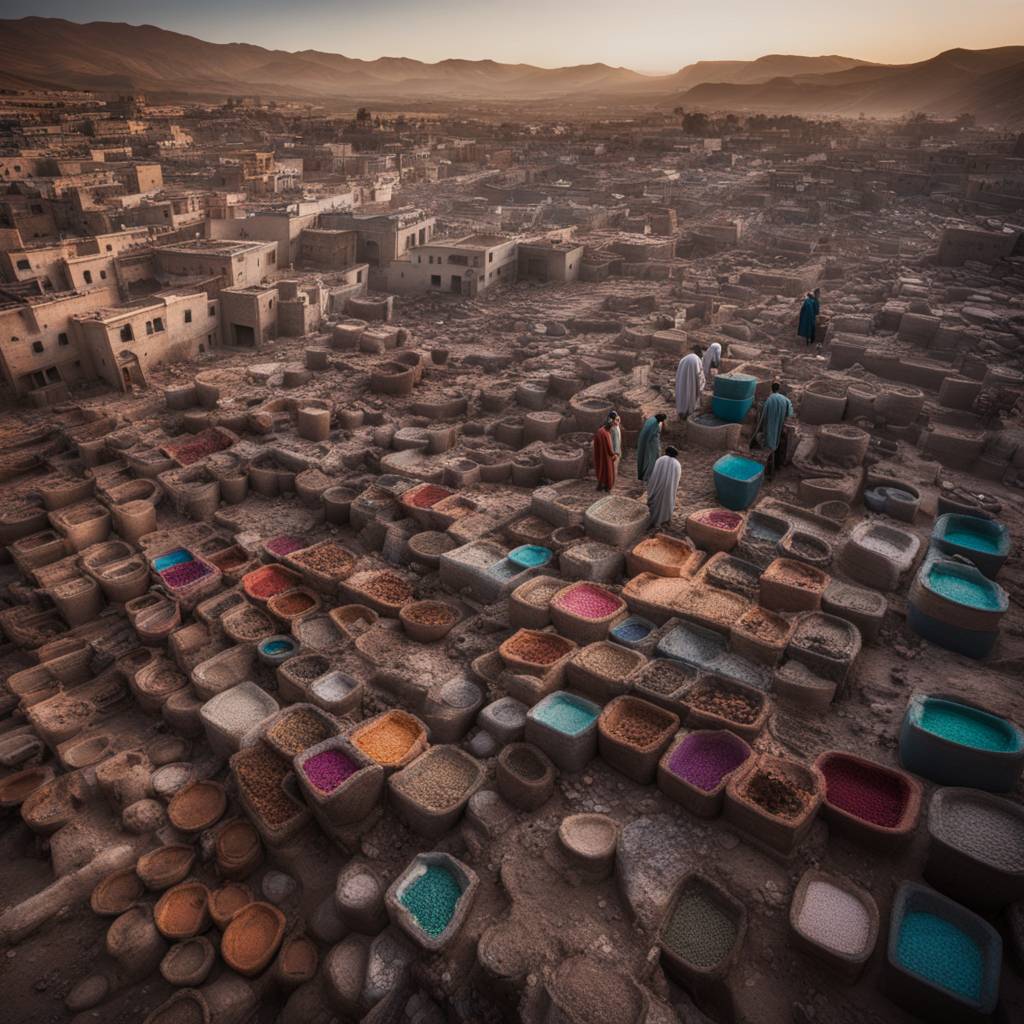Fatima Barri, a resident of Amizmiz, Morocco, was left with a cracked and crumbling home after a devastating 6.8-magnitude earthquake struck the Atlas Mountains months ago. Despite the damage, she chose to spend the holy month of Ramadan in her damaged house, cooking traditional meals to break the daily fasts. Another 3.3-magnitude earthquake shook the region, causing fear and anxiety, but Barri remained in her home as she had nowhere else to go. Many residents in the community are tired of waiting for normalcy to return after the earthquake that killed nearly 3,000 Moroccans in September.
As Ramadan began in Morocco, the holiday mood was tinged with both festiveness and despair for many residents. In the midst of rubble and destruction, people cooked traditional meals like tagine and made tea and bread on their stoves, keeping the spirit of Ramadan alive. Despite the challenges, Barri found small pleasures in replanting mint and verbena near the debris on her roof and appreciated the sense of community and togetherness during the month of reflection.
Morocco faces the daunting task of rebuilding after the earthquake, with over 300,000 people estimated to have been affected in Marrakech and the surrounding provinces. Plans are in place to rebuild schools, roads, hospitals, and to assist farmers who lost their herds. The government aims to return people to their homes and hopes that the reconstruction efforts will bring new development opportunities to a region that has long been lacking in infrastructure.
On the ground, there is frustration among construction crews who are working on rebuilding efforts without proper guidance on earthquake-resilient construction techniques. Protests have erupted against local authorities, with concerns of corruption and a lack of transparency in the distribution of aid. The government has provided monthly stipends and initial reconstruction assistance to affected families but challenges remain in reaching those in need.
International aid has been offered to support Morocco’s rebuilding efforts, with a $1.3 billion loan from the International Monetary Fund being one form of assistance. Signs of resilience and economic activity are visible in Amizmiz as life slowly returns to normal, but some residents continue to struggle as they wait for promised reconstruction funds. The road to recovery is expected to be long, with only a small percentage of those affected reporting government support according to a recent survey.
In Amizmiz, community associations have played a crucial role in providing assistance to residents as they navigate the aftermath of the earthquake. Many residents rely on the support from these associations, as they feel that little help is coming from the government. Despite the challenges, residents like Abdelaziz Smina, a blacksmith whose home was not deemed damaged enough to qualify for aid, continue to hold onto their faith as they weather the disaster. Ramadan has been a time for reflection and reaffirmation of faith for many residents as they rebuild their lives after the earthquake.


